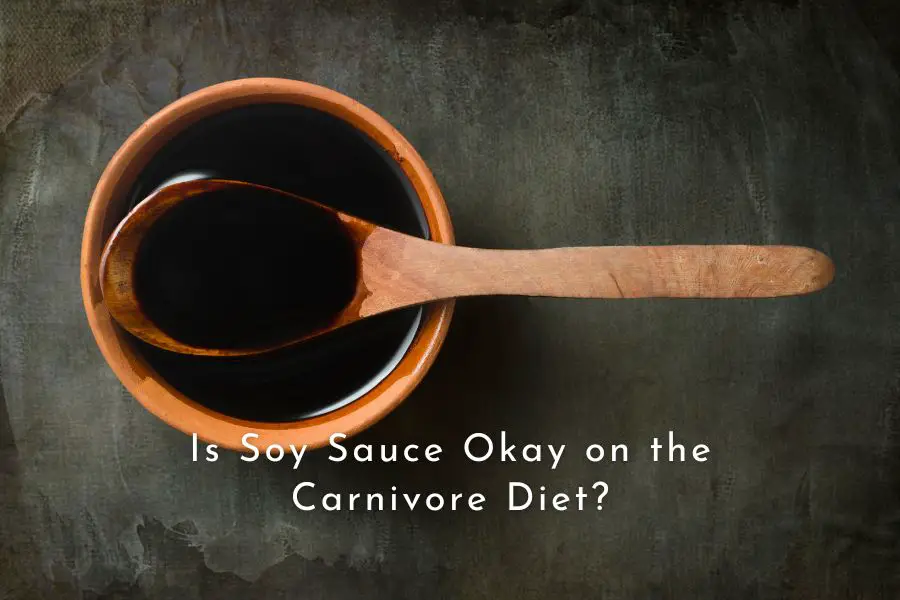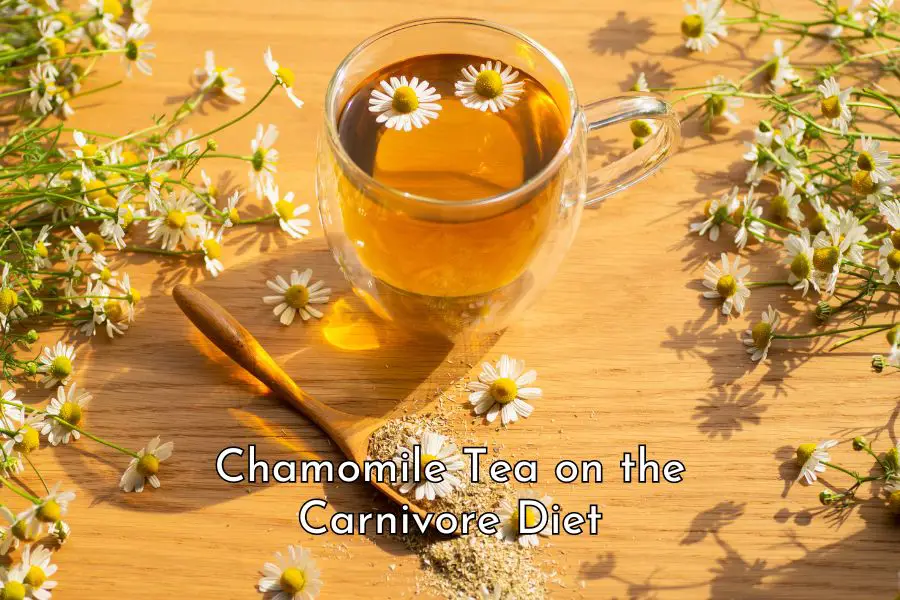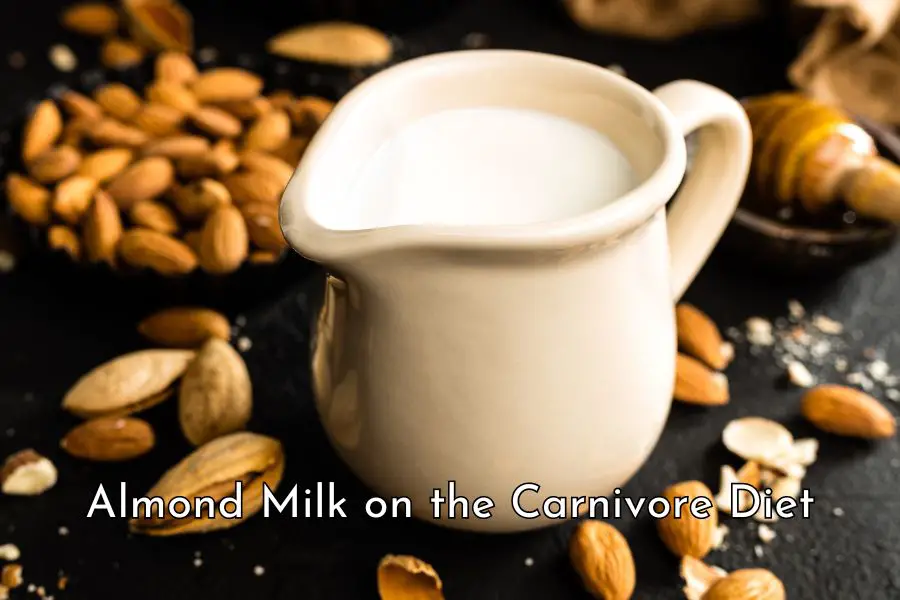Soy sauce is a popular condiment worldwide due to its versatility and ability to enhance the flavor of many dishes. If you are following a carnivore diet and wondering whether you can still use soy sauce with meat even though it is not a carnivore food, this post is for you. Below, we’ll look at how soy sauce is made, what’s in soy sauce, and whether it is still okay to use it as a seasoning on a carnivore diet.
How Is Soy Sauce Made?
Traditionally, soy sauce is made from fermenting soybeans and wheat. First, steamed soybeans and roasted and crushed wheat are blended together. Mold or yeast is then added to the mixture and is incubated for three days. Water and salt are then added and the soybean and wheat mixture is slowly fermented in large wooden barrels or vats for six months to a few years. Once the fermentation is over, the fermented mixture is pressed to extract the liquid, which is the soy sauce. The soy sauce is then pasteurized and bottled. [1]
Alternatively, soy sauce can be made in a few days without fermentation through a chemical process called hydrolysis. This method involves the use of hydrochloric acid to break down soybean proteins and release amino acids and other compounds. After hydrolysis, the mixture is neutralized using sodium carbonate to bring the pH back to a more neutral level. The mixture is then filtered and various additives, such as salt, sugar, caramel color, and sometimes artificial flavorings, are added to achieve the desired taste, color, and aroma of soy sauce. [2]
What’s in Soy Sauce?
The most common ingredients in soy sauce are water, soybeans, wheat, mold or yeast and salt. However, you can also find many other ingredients such as hydrolyzed soy protein, rice, sugar, corn syrup, glucose syrup, coloring, ethyl alcohol, vinegar, lactic acid, monosodium glutamte, and preservatives.
Below are what you will find in some popular soy sauce brands.
Organic Soy, Organic Wheat, Salt. Naturally Brewed.
Organic Soy Sauce
Water, wheat, soybeans, salt, sodium benzoate (preservative).
Water, Salt, Caramel Color, Sugar, Soybeans, Wheat.
Lee Kum Kee Premium Dark Soy Sauce
Water, Wheat, Soybeans, Salt, Sodium Benzoate: Less than 1/10 of 1% as a Preservative
Kikkoman Traditionally Brewed Soy Sauce
Water, wheat gluten, salt, sugar, fermented soybeans, caramel coloring, sodium benzoate, potassium sorbate, preservatives
Aloha Shoyu Lower Sodium Soy Sauce
Soy sauce (water, soybeans, salt, sugar, ethyl alcohol, distilled vinegar, lactic acid), organic apple cider vinegar, natural flavor.
Trader Joe’s Soy Sauce
Water, Salt, Hydrolyzed Soy Protein, Corn Syrup, Caramel Color, Potassium Sorbate (Preservative).
La Choy Soy Sauce
Soy Sauce (Water, Soybeans, Salt, Wheat Flour), Sugar, Caramel Color, High Fructose Corn Syrup, Rice Wine (Water, Rice), Glucose Syrup, Salt, Monosodium Glutamte, Yeast Extract [Contains Soy Sauce (Soybeans, Wheat), Natural Flavoring, Caramel Color], Potassium Sorbate (Preservative), Disodium Inosinate, Disodium Guyanylate.
Amoy Casserole Soy Sauce
Is Soy Sauce Okay on a Carnivore Diet?
Soy sauce is not a carnivore food, but if you are generally healthy, are not trying to address any chronic health conditions with the carnivore diet and have no soy or wheat allergies, in our view, it is generally fine to use soy sauce to add flavor to your meat dishes. And if you do, it is best to use only naturally fermented soy sauce that is free from harmful additives.
Soybean contains anti-nutrients such as phytate, lectins, oxalate, enzyme inhibitors, phytoestrogens and saponins. These compounds have been linked to a number of potential health concerns such as poor nutrition absorption, gut issues, kidney stones and disruptions in hormone balance. [3, 4, 5 4, 5, 6, 7, 8, 9, 10]
However, as a seasoning, soy sauce consumption is typically small. Furthermore, the natural fermentation and heat processing does help reduce the anti-nutrient content in soy sauce to some extent. Therefore, our view is that, for those who are generally healthy, it is perfectly fine to incorporate soy sauce into their carnivore diet.
However, in our view, for some people, it’s best to avoid using soy sauce even those made using the traditional fermentation methods. In particular: [11, 12, 13]
- Those who are trying to heal from chronic health issues with the carnivore diet. It’s best to just eat fatty meat and organ and drink water to heal first before experimenting with various seasonings to assess their tolerability
- Those with gluten sensitivity. Most soy sauce contains wheat and although the gluten content in soy sauce is likely to be low, it’s best to avoid soy sauce or look for products that are clearly labeled “gluten-free”
- Those with histamine sensitivity. Like other fermented food, soy sauce is relatively high in histamine.
What Is the Best Soy Sauce?
In our view, the best soy sauce is made using the traditional method of fermenting organic soy beans and wheat using mold or yeast over a long period of time.
Traditionally made soy sauce typically only has water, soy beans, wheat, salt and yeast. This take months and even years to produce and can be quite expensive. However, the long fermentation process allows bacteria to break down amino acids and reduces the levels of anti-nutrients in soy sauce.
As mentioned above, soy sauce can also be made quickly using a cheap method involving hydrolyzed soy protein. If it is not specifically stated on the label that the soy sauce has been made using a traditional brewing method, it is highly likely that it has been made using hydrolyzed soy protein and it is best to avoid this type of soy sauce.
A byproduct of the chemical process of making soy sauce using hydrolyzed soy protein is a contaminant called 3-MCPD which has been reported to be carcinogenic, nephrotoxic, and reproductively toxic in animal studies and has been registered as a chemosterilant for rodent control. [13, 14]
Furthermore, around 90% of U.S. soybeans are produced using genetically engineered seeds that are resistant to herbicides such as glyphosate, glufosinate, and dicamba. This means when farmers spay those “Roundup Ready” soybean plants with herbicides, weeds are killed but the plants would survive. [15]
Roundup Ready GM-soybeans are found to contain high residues of glyphosate and AMPA (breakdown of glyphosate) compared to conventional and organic soybeans. They also have poorer nutritional profiles. [16]
While soybean crops may be resistant to those herbicides, humans aren’t. “In mammals, including humans, glyphosate mainly has cytotoxic and genotoxic effects, causes inflammation, and affects lymphocyte functions and the interactions between microorganisms and the immune system“. [17, 18, 19]
In addition, some commercial soy sauce also contains preservatives, lactic acid and sodium benzoate (see examples of ingredients above).
Sodium benzoate is used as a preservative agent in medications, cosmetic compounds and shampoos. It is clastogenic, mutagenic and cytotoxic to human lymphocytes in vitro. [20, 21]
Sodium benzoate combined with vitamin C forms benzene which is a known carcinogen. In a study on rats, it is found that sodium benzoate and vitamin C synergistically aggravate testicular dysfunction. However, the FDA is of the view that low levels of benzene found in beverages don’t pose a safety concern for consumers. [22, 23]
Conclusion
In summary, if you are in good health and do not have any allergies to wheat or gluten, it is generally acceptable to use soy sauce to enhance the flavor of your food.
If you decide to include soy sauce in your diet, it’s advisable to select soy sauce that meets the following criteria:
- Produced through traditional brewing methods
- Composed of natural ingredients such as soybeans, wheat, salt, and yeast
- Free from additives such as sugar, corn syrup, artificial flavors, coloring, and preservatives
- Made from high-quality ingredients, such as organic and non-GMO sources.
Other posts you might be interested in:
Are Energy Drinks Okay on a Carnivore Diet?
Is Hot Sauce Okay on the Carnivore Diet?
Carnivore vs Low-Carbs vs Moderate-Carbs vs High-Carbs
Is the Carnivore Diet Unhealthy Long-term?
How to Carnivore Diet While Traveling
What Are the Best Ways to Cook Meat on the Carnivore Diet?
Is Carnivore the Best Anti-Aging Diet Around?
11 Common Carnivore Diet Mistakes
Carnivore Diet for Beginners: 15 Tips for Success
Disclaimer: The information in this post is for reference purposes only and is not intended to constitute or replace professional medical advice. Please consult a qualified medical professional before making any changes to your diet or lifestyle. Please check out our disclaimer for more detail.





